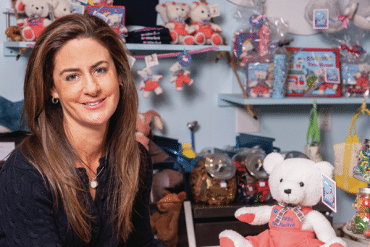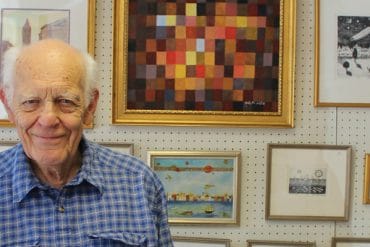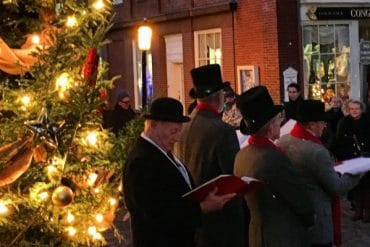
Bestselling author and Book Festival Luminary Jodi Picoult lets us in on her secrets to literary success.
Most people who pick up Jodi Picoult’s novels can’t put them down until they’ve read through her entire collection. Her signature fiction inserts exhaustively researched characters into complex, often controversial situations that can engross even the most reluctant readers. She’s sold tens of millions of copies around the world, topped the New York Times Bestsellers List, and now she’s coming to the island as a Nantucket Book Festival Luminary. We chatted with Jodi Picoult before she washed ashore this June.
N MAGAZINE: You meticulously research the characters in all of your work. Their lives and professions include Amish farmers, a cardiac surgeon, an animal conservationist who lives among wolves, a wiccan, a comic book artist, a mass murderer, a ghost hunter, a baker, a Holocaust victim… Are some of these characters inspired by people in your life?
JODI PICOULT: None of the characters are inspired by anyone I know in my real life. The characters arrive in my head, speaking and feeling very real to me, so to give them the personalities of people I know would just be weird. That said, I do a ton of research, and very often I study wind up becoming part of the characters’ lives. The Storyteller is a great example of this. After speaking to five Holocaust survivors, I braided bits and pieces of their experience together to create the experience Minka has during the war in my novel.
N MAGAZINE: Your research seems to take you on some pretty incredible journeys: the Alaskan tundra to visit an Inuit village for The Tenth Circle, the Department of Justice to hunt down information on Nazi war criminals for The Storyteller, and an Arizona jail to learn how to make crystal meth and a zip gun from inmates for Vanishing Acts. Which book was the most challenging to research?
JODI PICOULT: The most challenging book to re- search is a tough one, because there’s physically grueling and there’s emotionally grueling. Emotionally, My Sister’s Keeper was hard—interviewing pediatric cancer patients and their families nearly killed me. Physically, researching The Tenth Circle was very draining. I had to get to Akiak, Alaska, and the only way to get there in the winter is on the back of a snowmobile or a dogsled. And since there are no high- ways in the winter, when the river freezes … you travel that way. Going ghost hunting for Second Glance was the most fun. Things happened that I still can’t explain, but if you want to hear more you’ll have to come to my talk at the Nantucket Book Festival!
N MAGAZINE: Many of your legal thrillers and mysteries have a dark side, a parent’s worst- case scenario—childhood illness, adolescent bulimia, school shooting, rape. How much of your personal experience informs the ideas for your novels? How do you pick your topics?
JODI PICOULT: Thankfully I have not lived the lives of the characters in my books; if you read about my life you’d be horribly bored. So instead, my ideas come from a what-if question. What if a boy left standing after a botched suicide pact was accused of murder? What if a little girl developed an imaginary friend who turned out to be God? What if an attorney didn’t think that the legal system was quite good enough for her own child? I start by mulling a question and before I know it, a whole drama is unfolding in my head.
N MAGAZINE: Several of your novels have been made into TV movies, The Plain Truth, The Tenth Circle, The Pact and Salem Falls, including one for the big screen, My Sister’s Keeper starring Cameron Diaz. Do you now write with movies in mind?
JODI PICOULT: Any writer who writes thinking of the potential movie is bound to be disappointed. When people ask me who I’d cast in a movie adaptation, it takes me aback, since I really never dream-cast my books. I have been fortunate to have several TV movies and one big screen film made of my books, but the experiences have not all been pleasant. Although I had a great time with the TV adaptations… the big screen adaptation was a disaster. A lot of readers assume I let the director change the ending of [My Sister’s Keeper], for the movie version. I didn’t. It’s hard for people to believe, but when Hollywood adapts a movie to the screen, the author is pretty much at the bottom of the totem pole. Although the director had indicated that he was going to keep my ending, in word. And the end he did not hold true to his if you think you were disappointed, well, you can imagine how I felt.
N MAGAZINE: What’s your story on Nantucket?
JODI PICOULT: I haven’t been there in over twenty years! I came with my husband back when he was still my fiancé. We best lobster I’d ever had in my life. It’s amazing to think that the last time I was on that island, I had no children, and now mine are fully grown!
N MAGAZINE: How do you think the Nantucket Book Festival will be different than other book events you’ve attended?
JODI PICOULT: I haven’t been yet, so this is theoretical, but it seems more like a really cool party full of authors, at which readers get to mingle. The organizers really want us to enjoy our- selves, and at many book festivals authors are simply treated like trained monkeys meant to put on a show. I’m very excited about meeting some of the other writers who are attending. Oh, and you pretty much have one of the coolest locations for a book festival ever.





